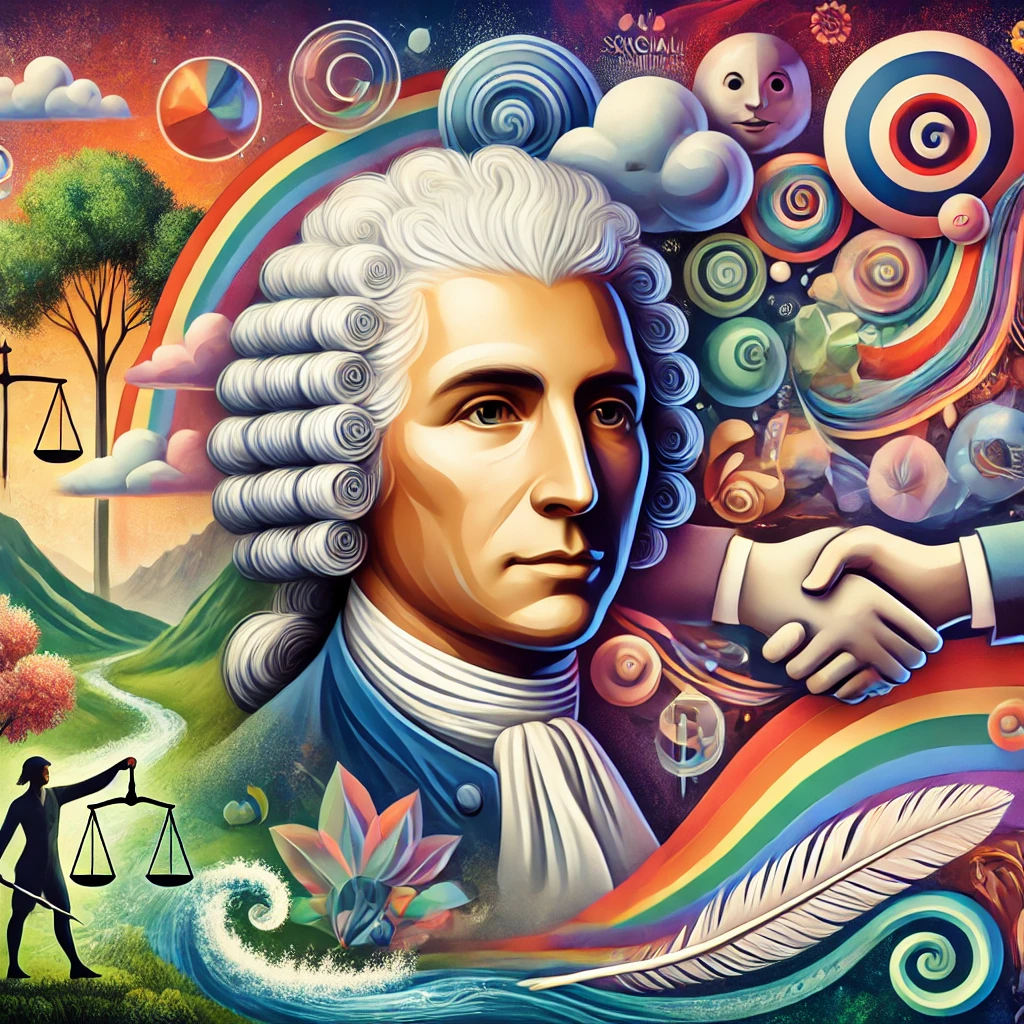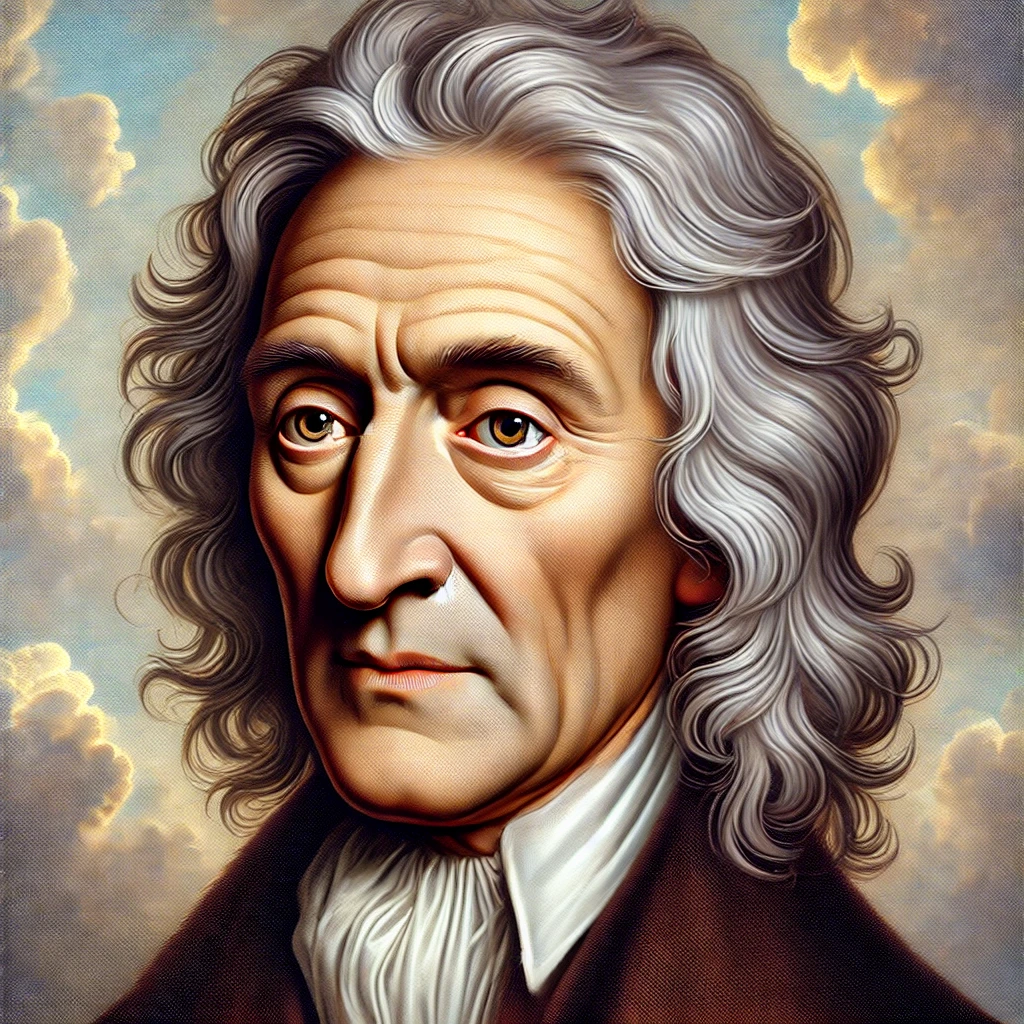Social Contract Theory

Place of Origin: Europe (primarily France, England, and Switzerland)
Century of Origin: 17th-18th Century CE
Associated Philosophers:
Overview of Social Contract Theory
Social Contract Theory is the idea that people agree, either explicitly or implicitly, to form societies and governments in order to create order and protect their rights. It suggests that individuals give up some of their freedoms in exchange for the benefits of living in a society with rules, laws, and governance. The theory argues that governments exist because people have agreed to allow them to hold authority, and in return, the government must protect the people’s rights and maintain justice. Social Contract Theory is used to explain why people follow laws and support political systems, and it emphasizes the mutual responsibilities between individuals and governments.
In Social Contract Theory, metaphysics focuses on the idea that societies and governments are human constructions, created through an agreement between individuals. Social contract theorists argue that there is no natural order to government or society, but that they are formed by people to serve their needs. This theory sees society as something that exists because individuals choose to cooperate with one another and create rules for living together. The theory assumes that humans are capable of rational decision-making and that they form governments to protect their rights and ensure fairness.
Social Contract Theory teaches that knowledge about society and government comes from understanding the agreements people make to live together. It argues that political knowledge is based on the idea that individuals create rules and systems of governance to protect themselves and promote the common good. The theory encourages people to think critically about the reasons behind laws and political systems, recognizing that they are not natural or inevitable but are created by mutual agreement. This approach emphasizes the importance of reason and dialogue in forming political knowledge.
Ethics in Social Contract Theory are based on the idea that individuals have a moral duty to follow the rules and laws of society because they have agreed to do so in exchange for the benefits of living in a safe and organized community. The theory teaches that it is ethical to follow laws because they protect the rights of everyone, but it also argues that governments must act ethically by respecting the rights of the people and fulfilling their responsibilities. If a government fails to protect its citizens or violates their rights, Social Contract Theory suggests that people have the right to challenge or change that government.
The logic of Social Contract Theory is based on the idea that individuals form societies to protect themselves and their rights. The theory argues that without rules and laws, life would be chaotic and unsafe, so people logically agree to give up some personal freedoms in exchange for protection and order. It suggests that by cooperating with one another and following agreed-upon rules, people can live in a society that benefits everyone. Social Contract Theory also teaches that governments must follow logical principles of fairness and justice to maintain the trust of the people.
In Social Contract Theory, aesthetics focuses on the idea that a well-ordered society, with clear laws and fair governance, is a form of beauty in itself. The theory suggests that a society where people cooperate, follow rules, and respect each other’s rights creates harmony and balance, which can be seen as aesthetically pleasing. Social Contract Theory values the idea of a just and peaceful society, where the rights and freedoms of individuals are protected, as an ideal worth striving for.
The methodology of Social Contract Theory involves analyzing the agreements people make to form societies and governments. It encourages critical thinking about why people choose to live in organized communities and what responsibilities they and their governments have to each other. Social contract theorists use reason and logic to explore how societies are created and maintained, asking questions about the fairness of laws, the legitimacy of governments, and the rights of individuals.
Social Contract Theory views humans as rational beings who have the ability to create societies and governments through mutual agreements. It teaches that people are naturally self-interested but are also capable of recognizing the benefits of cooperation and living under agreed-upon rules. This philosophy suggests that humans seek to protect their own rights while also understanding the need for collective responsibility, and that society exists because people choose to live together for mutual benefit.
The political philosophy of Social Contract Theory is based on the idea that governments are created by the people to protect their rights and ensure fairness. Social contract theorists argue that governments only have authority because people agree to give them power, and in return, the government must protect the people and act in their best interests. If a government fails to uphold its side of the contract by violating the rights of the people, Social Contract Theory suggests that the people have the right to resist or change that government.
Social Contract Theory has its roots in the work of philosophers like Thomas Hobbes, John Locke, and Jean-Jacques Rousseau. Hobbes argued that without government, life would be 'nasty, brutish, and short,' so people agree to form governments to create order. Locke believed that people have natural rights to life, liberty, and property, and that governments must protect these rights. Rousseau emphasized the importance of the 'general will'—the idea that governments should represent the collective interests of the people. Social Contract Theory continues to influence political thought today, especially in discussions about democracy and individual rights.
Key themes in Social Contract Theory include the idea of mutual agreement, the relationship between individuals and governments, and the balance between personal freedoms and societal responsibilities. The theory emphasizes that individuals agree to follow laws and give up some freedoms in exchange for the benefits of living in a safe and organized society. It also explores the idea that governments must act fairly and protect the rights of the people, and that individuals have the right to challenge or change governments that fail to do so.
Thomas Hobbes, John Locke, and Jean-Jacques Rousseau are some of the most influential philosophers associated with Social Contract Theory. Hobbes argued for a strong central authority to maintain order, while Locke focused on the protection of individual rights and the idea that governments must be accountable to the people. Rousseau emphasized the idea of collective decision-making and the 'general will,' arguing that governments should represent the common interests of the people.





